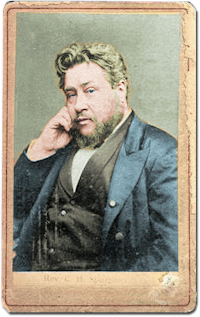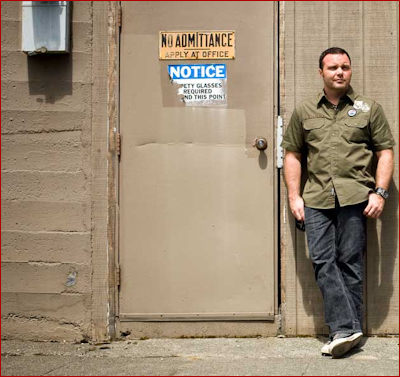Dear George Barna;
I admit that I am finding it hard to start my letter to you in an amicable way. For at least 5 years now, I have been someone who has turned from admiring your candor in dealing with people you would call your fellow Christians to finding myself somewhat appalled by you, your alleged findings, and your agenda for the faith & ecclesiology of the English-speaking church.
For me, the light bulb went on when, after reading your findings on the rates of divorce in Christianity vs. among non-believers, I discovered a secular study which did the work you somehow missed that demonstrated that people with actual Christian faith and not merely a silver fish on their vehicle have a significantly-lower rate of divorce than the unbelieving world. One would think that someone doing research "focused on the intersection of faith and culture," and providing "leadership and unique, strategic information and resources that help facilitate transformation in organizations, communities and individuals" would be interested that committed Christian faith actually turns out to transform individuals and communities and so on.
How, after that, you have been on a path to really eliminate the local church as we know it -- cross-pollinating your half-baked results with half-baked theology and history to try to paint a new churchless Christianity which, it seems, is the next step after seeker-sensitive, commitophobic churches. The detractors of this blog will want evidence of such so I point them to these reviews of your execrable books Revolution and Pagan Christianity.
Now, so what? Frankly, Ed Stetzer and LifeWay Research has outmanned your group for relevant data about the trends and habits of real Christians, and Ed's a guy much closer to the center mark of Christian orthodoxy and orthopraxy than you are. Your group's relevance and influence has, thank God, waned -- in large part I think because you're simply not credible.
But last week the Wall Street Journal -- one of the last nearly-objectives MSM outlets in America, at least when it comes to religion -- published this piece exposing the gross flaws of your last report on the trend of the attendance of women in American churches by Rodney Stark and Byron Johnson of Baylor University. I commend it to the readers of this blog, especially as they go here:
As for the supposed decline in female church attendance, the best data come from the NORC, which has conducted annual surveys since 1972. Across 38 years, there have been only small variations in church attendance, and Barna's reported 11 percentage-point decline in women's church attendance (to 44% from 55%) simply didn't happen. Nor has the gender gap narrowed. In 1991, according to NORC data, 38% of women and 28% of men said they attended weekly. In 2002, 36% of women and 24% of men attended weekly. In 2008, 36% of women and 25% of men attended weekly, and in 2010 it was 34% of women and 25% of men.Here's all I have to say about that: reputable people check their work. In church we call that "accountability" (of course, you need a church and elders and fellow believers who are committed to you for that to work), but in the secular world we call that "vetting". Before you make a statement that ought to cause people to take some kind of decisive action, you have to vet your data, and vet your conclusions. In my day job, I do this all the time as I report on global trends and customer demand to make sure we are making commitments which align with customer commitments -- both so we don't miss any major projects and also so we don't build things that never sell.
In my case, my job is to avoid costing the company profit by making sure neither finished goods nor missed sales opportunities swallow up our EBITDA. It's a way to keep people employed.
In your case, however, there's something more significant at stake. Your calls to action cause people to make radical decisions about the cause of Christ -- and by definition they have eternal consequences. And to that end, one would think that a warning such as, "For the time is coming when people will not endure sound teaching, but having itching ears they will accumulate for themselves teachers to suit their own passions, and will turn away from listening to the truth and wander off into myths," would have special weight for you.
Yet somehow, you wind up being a purveyor of sociological myths which play into both secular stereotypes (playing to unbelievers' skepticism) and the worst fears of honest people of good faith. Why is that, I wonder? How is it that you are not in fact someone helping the church but harming it both by making unbelievers more jaded toward it and making believers afraid to do what the Bible tells them to do about the matter of taking the Gospel itself to lost people so that God's word will do what it is meant to do?
I refrain from offering an opinion in that matter, but I call on you to consider it -- you are the one who can peer into your own spiritual life and find out why you put yourself in the same place as the men Paul says made a shipwreck of their faith.
Whatever you think your motives are, your professional friends at Baylor have made it clear that the results are bad results -- unreliable and harmful. And for that, you should repent.












 ome of the comments and e-mails I received after
ome of the comments and e-mails I received after  Of course, the question of how full deity and true humanity can coexist in one Person is full of mystery. In fact, it is one of the toughest conundrums in all of theology, and for that reason rationalists and unbelievers frequently deny the possibility of the Incarnation altogether. But authentic Christians have always affirmed it, and not one orthodox Christian theologian of any serious repute has ever taught that the incarnate Christ was divested of the divine attributes.
Of course, the question of how full deity and true humanity can coexist in one Person is full of mystery. In fact, it is one of the toughest conundrums in all of theology, and for that reason rationalists and unbelievers frequently deny the possibility of the Incarnation altogether. But authentic Christians have always affirmed it, and not one orthodox Christian theologian of any serious repute has ever taught that the incarnate Christ was divested of the divine attributes.  Scripture, Church councils, and written polemics were all utilized in the refutation of these erroneous views. As soon as one issue was settled, however, another would surface and need to be dealt with. In 325, the council of Nicea condemned Arianism, affirming what Scripture declares: that Jesus is fully divine. Ironically, the heresy of Arianism enjoyed its heyday after Nicea, and the influence of Arianism (with the Arians' incessant pleas for tolerance), opened the door to other heresies, including revivals of some Christological errors that had already ostensibly been eradicated.
Scripture, Church councils, and written polemics were all utilized in the refutation of these erroneous views. As soon as one issue was settled, however, another would surface and need to be dealt with. In 325, the council of Nicea condemned Arianism, affirming what Scripture declares: that Jesus is fully divine. Ironically, the heresy of Arianism enjoyed its heyday after Nicea, and the influence of Arianism (with the Arians' incessant pleas for tolerance), opened the door to other heresies, including revivals of some Christological errors that had already ostensibly been eradicated. 

 hough he was rich, "he became poor." I am only telling you something that you know full well, but let your minds be refreshed with the remembrance that Christ was so poor that he was swaddled with bands just as any other infant was. Although he was the Infinite, he was so poor that he had to be sheltered in a stable because there was no room for him in the inn. Afterwards, he was so poor that he was banished from his own country and had to flee into Egypt. He was so poor that he was the fit companion of a humble carpenter at Nazareth; so poor that, when he came out into public life, his dress was the common garment of a laborer, woven from the top throughout without a seam.
hough he was rich, "he became poor." I am only telling you something that you know full well, but let your minds be refreshed with the remembrance that Christ was so poor that he was swaddled with bands just as any other infant was. Although he was the Infinite, he was so poor that he had to be sheltered in a stable because there was no room for him in the inn. Afterwards, he was so poor that he was banished from his own country and had to flee into Egypt. He was so poor that he was the fit companion of a humble carpenter at Nazareth; so poor that, when he came out into public life, his dress was the common garment of a laborer, woven from the top throughout without a seam.


 hilippians 2:7 says Jesus "emptied Himself" (NASB)—or if you're using the ESV, He "made himself nothing." Those are both legitimate translations of the Greek verb
hilippians 2:7 says Jesus "emptied Himself" (NASB)—or if you're using the ESV, He "made himself nothing." Those are both legitimate translations of the Greek verb 

 literally has
literally has  him are all in the singular: 2:4, 8, 16, 18) was the same then as it is today: he was a charismatic individual who came in with special, personal, private revelation, special truths, special methods, all of which were
him are all in the singular: 2:4, 8, 16, 18) was the same then as it is today: he was a charismatic individual who came in with special, personal, private revelation, special truths, special methods, all of which were  responsibility. We have no more holy trump cards hidden up our sleeves that no one else can see. We can't pull out our cherished "the Lord told me" cards, or our "I just feel led to" cards, and end the debate. All we have is that Bible out there, that everyone else can see, study, learn, and meditate over just as surely as we. We have to agree with the Holy Spirit that it is what He said it was: sufficient (Deuteronomy 29:29; Psalm 119; 2 Timothy 3:15-17, etc. ad inf.), and we study it to know His mind (2 Timothy 2:7). We're on a level playing field; we have no mystical "gotcha" from God.
responsibility. We have no more holy trump cards hidden up our sleeves that no one else can see. We can't pull out our cherished "the Lord told me" cards, or our "I just feel led to" cards, and end the debate. All we have is that Bible out there, that everyone else can see, study, learn, and meditate over just as surely as we. We have to agree with the Holy Spirit that it is what He said it was: sufficient (Deuteronomy 29:29; Psalm 119; 2 Timothy 3:15-17, etc. ad inf.), and we study it to know His mind (2 Timothy 2:7). We're on a level playing field; we have no mystical "gotcha" from God.







 veryone has unexplained thoughts that seem to leap from nowhere into the mind. (
veryone has unexplained thoughts that seem to leap from nowhere into the mind. (
 To be clear: I usually "feel compelled to follow" my intuition only when I don't have a better rational or sensible idea of what to do. Maturity has taught me to hold off on trusting intuition and try to understand facts and reasons and the potential results of my actions before I act. In fact, I'd say that's what maturity is all about, to a very large degree.
To be clear: I usually "feel compelled to follow" my intuition only when I don't have a better rational or sensible idea of what to do. Maturity has taught me to hold off on trusting intuition and try to understand facts and reasons and the potential results of my actions before I act. In fact, I'd say that's what maturity is all about, to a very large degree. 

 hat is the truth? There is the point. Is the truth that which I imagine to be revealed to me by some private communication? Am I to fancy that I enjoy some special revelation, and am I to order my life by voices, dreams, and impressions?
hat is the truth? There is the point. Is the truth that which I imagine to be revealed to me by some private communication? Am I to fancy that I enjoy some special revelation, and am I to order my life by voices, dreams, and impressions? 



 ead
ead 










